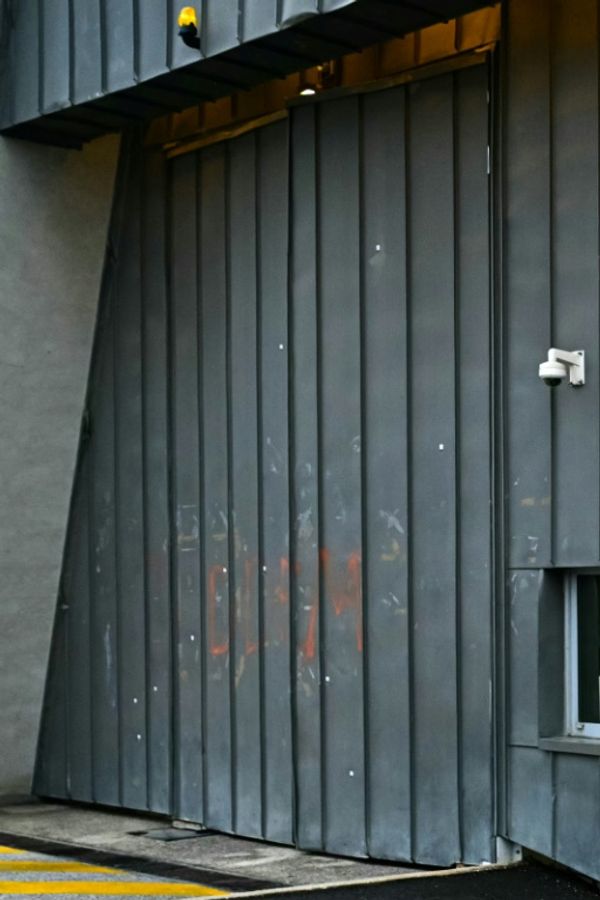
Shorouq spoke to FRANCE 24 in November about the challenges facing pregnant women in Gaza, which is experiencing severe shortages of both food and medical care. Eight months later, we asked her how she and her family are coping; not only do they face a constant threat from air strikes and shelling, but Shorouq’s daughter is suffering from stomach parasites due to dirty water.
When FRANCE 24 spoke to Shorouq in November, she was pregnant with her first child and living in a shelter in Khan Younis in southern Gaza. She gave birth in a hospital via C-section two months later, saying she was “very lucky” to have received a spinal anaesthetic. But the very next day she was forced to flee to Rafah to escape a rise in fighting.
“I tried four medical clinics in the hope someone could remove the stitches from the C-section. But I didn’t find anyone,” she says. “So my mother took the stitches out for me. We had no other choice.”
Shorouq did not receive any postnatal care, which is defined as the period six to eight weeks after giving birth. For a C-section, postnatal care would have included a health professional removing the stitches using sterile equipment and monitoring how the scar is healing to guard against infection.
“Pre-conflict, mothers in Gaza were able to access basic care,” says Hiba Alhejazi, from the humanitarian charity CARE International. “For example, they had access to hospitals where they could get their baby weighed, where checks could be done for certain health indicators, and there would be follow-up care for her. On a basic level, that kind of care was available.”
Research published in May by the Palestinian non-governmental organisation Juzoor, a CARE International partner, found that two-thirds of the Gazan mothers surveyed – all of whom gave birth during the current conflict – did not receive any postnatal care.
Read moreMalnourished, sick and scared: Pregnant women in Gaza face ‘unthinkable challenges’
'Our apartment has been completely destroyed'
Shorouq has since fled again and is living, under the blistering summer heat, in a tent in the centre of Gaza.
“I’ve had to flee seven times,” she says.
All of the clothes and toys she carefully picked out for her baby during her pregnancy are gone.
“We’ve been told that our apartment has been completely destroyed. Right now we have nothing left in this world, except our daughter.”
'My baby is in huge pain'
Shorouq had to give up breastfeeding when her daughter was three months old. She did not have sufficient breast milk because she could not access enough food or water for herself to sustain a steady supply.
She now bottle-feeds her daughter, but sometimes she is forced to make up the formula with water that she does not know is safe.
“We buy purified water for our daughter when we can, but it costs a lot of money and we cannot always find it, so we have to use recycled water,” she explains.
Unsanitary water has given her daughter intestinal parasites. “My baby is in huge pain in her stomach, she cries a lot. You can see there’s something wrong in her stool, her sleep is broken and she never feels rested, she’s uncomfortable and suffering,” says Shorouq.
Desperate, she tried 13 pharmacies before managing to get hold of the antibiotics her daughter needs. She expects the antibiotics to work but knows the parasites will return if she cannot consistently find clean water for her daughter.
“All I’m asking is that she recovers from the problem in her stomach and for her to have good health. I pray for her every day,” Shorouq says.
“Water sanitation facilities have broken down,” Alhejazi explains. “There’s sewage everywhere. We’re in summer so it’s hot, which obviously increases the risk of dehydration. Lack of access to clean water is a constant issue. And that’s also why you see the spread of so many infectious diseases.”
Read moreAfter 10 months of war, the humanitarian situation in Gaza ‘is absolutely atrocious’
'This war has exhausted us'
The UN estimates that 5,500 women give birth every month in Gaza, or about 180 per day.
During and after their pregnancies, they all face the stress and fear caused by air strikes, helicopters and drones in the skies above their heads.
Israel launched a military offensive on Gaza after Hamas attacked southern Israel on October 7, killing almost 1,200 Israelis and foreigners and taking more than 250 people hostage. The Hamas-run health ministry in Gaza says more than 39,000 people have since been killed and almost 90,000 injured by Israeli strikes on the enclave.
“I wish that this would end; we’re really tired. This war has exhausted us,” says Shorouq. “We’re strong people in Gaza, but even iron-strong people are tired. None of us know when this will end. Each time they announce that there could be a ceasefire, but nothing changes for us on the ground.”
After a six-day pause in the fighting late last year in exchange for the release of 105 hostages, ceasefire talks between Israel and Hamas have faltered.
Meanwhile, Shorouq and her daughter are coping as best they can. But Shorouq feels helpless most of the time.
“I would do anything in the world for my daughter,” she says.
“You cannot imagine how it feels when your child needs help, but you cannot help them.”







